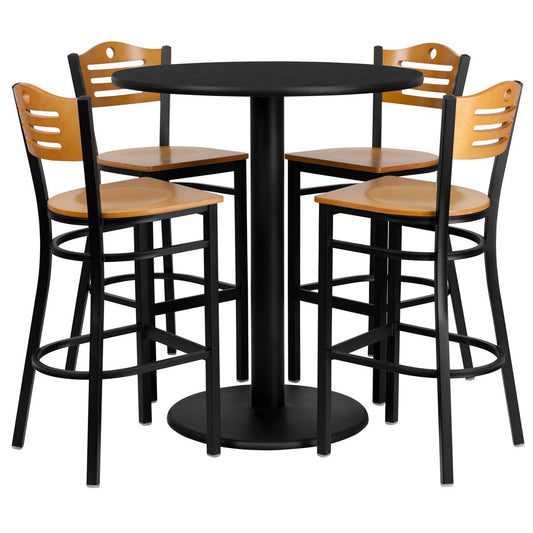
Why Are There Specific Rules for Service Dogs in Restaurants?
Share
As service dogs grow in popularity and people learn more about their importance, many visitors to restaurants and other food establishments are bringing these working animals. However, unlike pets, service dogs have a different set of rules, which are intended to provide access and assistance to people with disabilities.
Employers, employees, and customers should be aware of how dogs can be used in restaurants. This article explores the laws for service dogs in restaurants, their characteristics, and possible adaptations within the restaurant industry to expand the customer base.
The Role of Service Dogs and Their Rights
Service dogs are trained animals that help people with disabilities by performing specific tasks; they are more than just companions. Examples include assisting people who are visually impaired, hard of hearing, or completely deaf. Service dogs perform important functions in the lives of these individuals, including being the eyes and ears of those they serve.
In the US, these individuals are ubiquitous, and their service dogs are legally with them. "Are service dogs allowed in restaurants in US?" Let's clarify this question. The answer to this type of question is yes at most eateries, which leaves people shocked when they see countless service dogs.
There is also a law that separates pets from service dogs. Pets are only allowed on the outside patio, not throughout the restaurant. So, despite the desire for service-dog-friendly restaurants, service dogs are only allowed in areas where customers sit. We take this policy as a precaution to ensure that people with disabilities can still enjoy services that able-bodied members of society take for granted.
Why Are There Laws for Service Dogs in Restaurants?
The ADA (Americans with Disabilities Act) establishes certain rights for people with disabilities. Service dogs are allowed in restaurant chairs to prevent discrimination and enable greater integration. Reasonable accommodations for health deficiencies consider a service dog a part of its owner.
These laws also help outline the inevitable lines and expectations of businesses. Some restaurants could have unfavorably denied entry to individuals with such dogs without such proper regulation. Also, the provisions provide guidelines other than those that may place an undue burden on restaurant owners about service dogs.
Can a Restaurant Refuse a Service Dog?
Considering the ADA, it is illegal for a restaurant to deny entry to a service dog in most situations. Nevertheless, there are circumstances under which such a denial may be considered valid. For example, in a case where the dog is aggressive, excessive in its barking, or growling more than usual to the extent of destroying property owned by the establishment, the restaurant has the right to ask the handler to remove the dog.
Therefore, the answer to “Can a restaurant refuse a service dog?” is yes, although such circumstances are very rare. The only concern is that such dogs must not pose a threat to any other guest or cause a direct disruption. If such circumstances occur, the restaurant must remove the dog, but guests can continue without the dog.
Service Dogs vs. Non-Service Dogs: Understanding the Differences
When restaurants allow dogs, it is important to distinguish between service dogs and non-service dogs. Service dogs are trained to perform specific tasks directly related to their handlers' disability, they receive legal protections. However, non-service dogs are simply household pets and are not given the same training or legal recognition. When dogs are not allowed, bringing a pet non-service dog into a restaurant can be unsanitary and can spoil the atmosphere if the dog makes a mess or annoys other guests.
In the case of non-service dogs in restaurants, Regarding non-service dogs in restaurants, most restaurants have specific rules related to local ordinance regulations that are in place to protect the health and safety of customers and do not allow animals indoors. There is a provision for allowing dogs into outdoor areas of restaurants. It is also useful to know that non-service dogs are generally not allowed into any indoor areas of dining facilities, including accompanying their owners because there is no law allowing such dogs.
Managing Service Dog Policies in Dog-Friendly Restaurants
Despite outdoor patios being designated as dog-friendly areas, the same rules do not apply to indoor facilities. Dog-friendly restaurants may have outdoor facilities where customers can bring their dogs, but legally, only service dogs can be inside the establishment. And even for those that are dog-friendly, there is a category of dogs that are allowed entry: service dogs and their handlers cannot be separated. This is an obvious requirement, as these dogs must remain with their owners.
This distinction matters, especially as restaurants work toward creating a warm and inviting space for every visiting customer. Many people type “pet-friendly restaurant near me” or “restaurants near me that allow dogs” into the search bar. Despite the possibility of pet-friendly areas within a restaurants furniture, it’s important to remember that ADA regulations require employees to differentiate between pets and service dogs.
Training Staff to Handle Service Dog Situations
Proper training can make a significant difference in ensuring that restaurant staff respond appropriately when a customer arrives with a service dog. Employees should understand that they can only ask two specific questions to determine if an animal is a service dog:
- Is the dog a service animal required because of a disability?
- What tasks has the dog been trained to perform?
These questions allow staff to confirm the animal’s status without intruding on the handler’s privacy or asking for personal documentation. Asking for certification or identification is not permitted, as it could be seen as discriminatory.
Training also reduces situations where people are torn between following policy or legal advice that they understand differently. For example, if a customer comes in with a dog and you are unsure, instead of assuming it is a pet, staff members who know the rules can politely ask the two questions allowed by law.
The Challenges and Benefits of Service Dog Accommodations in Restaurants
The presence of service dogs in restaurants can bring both problems and opportunities for restaurants. Some employees may request dogs to be around with hesitation and some customers may not strictly follow the rules. Sometimes, other guests may be bothered by the dog's presence and it becomes some kind of problem. However, with appropriate education, these situations can be managed effectively.
The impact of the change for service dogs outweighs the frustrations because the benefits outweigh the costs. It can be welcoming for all customers or every establishment that follows ADA rules.
In addition, making people with disabilities feel comfortable in restaurants will also increase the number of customers, and therefore the popularity of restaurants will increase by being seen as a fellowship place for the disabled. Customers who know they can visit with their service animal without being turned down by business owners will naturally prefer and recommend the places.
Tips for Patrons Visiting Restaurants with Service Dogs
Patrons who visit with service dogs may benefit from being informed about their rights and potential questions beforehand. When visiting a restaurant with a service dog, it is not uncommon to encounter employees who do not understand ADA laws. Staying calm and explaining the situation can reduce anxiety for both you and the restaurant staff. Still, it is also your prerogative to avoid bullying or misunderstanding of your needs.
Despite service dogs being trained to be steady and non-excitable, restaurants can be chaotic and noisy environments. Keeping the service dog away from and close to the normal line of movement will make the job easier for you and the staff.
Embracing Accessibility in All Aspects of Dining
Policies and laws for service dogs in restaurants affecting people with disabilities can be used to promote diversity in the community. Allowing service dogs and adhering to such rules increases the number of customers and promotes a greater degree of diversity. Apart from fulfilling most of the legal requirements, making it an important factor, it also promotes consideration, convenience, and openness within society.
These laws can help create a better environment for everyone, whether you are a restaurant owner, a service dog handler, or a fellow diner. Remember, when you visit a dog-friendly restaurant or inquire about service animal regulations, these rules exist to guarantee a fair and accessible outdoor dining dog friendly experience for all patrons.
Looking to furnish your space? Check out affordable metal stools at Wholesale Bar Stoolclub for quality, style, and comfort at the right price.





